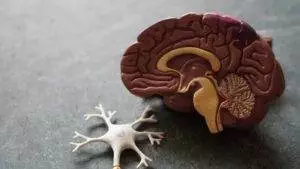-
 Art of Wellness Acupuncture & Traditional Chinese Medicine (TCM)11704 Wilshire Blvd, Suite 295, Los Angeles, CA, 90025
Art of Wellness Acupuncture & Traditional Chinese Medicine (TCM)11704 Wilshire Blvd, Suite 295, Los Angeles, CA, 90025
myartofwellness@gmail.com310-451-5522 Office Hours
MonClosedTue7:30 am --4 pmWed7:30 am --4 pmThu7:30 am -- 4 pmFri7:30 am -- 4 pmSat7:30 am -- 4 pmSunClosedOur office opens from Tuesdays to Saturdays 7:30 am to 4 pm, will be closed on Memorial day, Independent day, Labor day, Thanksgiving day, Christmas and New year.
-
Recent Posts
- How to Treat Rosacea With Acupuncture and TCM
- How to Treat Perioral Dermatitis With Acupuncture and TCM
- Lymphatic Drainage With Acupuncture and TCM
- How to Treat Turf Toe With Acupuncture
- How to Treat Nerve Pain With Acupuncture and TCM
- How to Treat Watery Eyes With Acupuncture and TCM
- How to Treat Ovarian Cysts With Acupuncture and TCM
- How to Treat Dystonia With Acupuncture and TCM
- Can Acupuncture Help Bad Breath?
- How to Treat Atopy with Acupuncture and TCM
- Plantar Fasciosis Treatment With Acupuncture and TCM
- How to Protect Yourself When Air Quality Is Poor
- How to Treat Spinal Headache With Acupuncture and TCM
- How to Treat Sarcoidosis With Acupuncture and TCM
- How to Treat Flu With Acupuncture and TCM
- Chinese New Year 2025 Year of the Snake
- Sign up to receive news and updates and get my free report:“The Top 10 Reasons to Try Acupuncture”

July 2025 M T W T F S S 1 2 3 4 5 6 7 8 9 10 11 12 13 14 15 16 17 18 19 20 21 22 23 24 25 26 27 28 29 30 31
Meditation
How to Treat Anxiety With TCM and Acupuncture
By Qineng Tan, L.Ac., Ph.D. and Xiaomei Cai, L.Ac., Ph.D.

Everyone experiences feelings of anxiety or apprehension at times. Sometimes people suffer from excessive feelings of dread or panic, even when they are not in immediate danger. In some cases, the complex cascade of emotional and physical sensations encompassed by the term Anxiety is so pervasive that it becomes a chronic mental health condition. TCM and Acupuncture offer a natural, highly effective treatment option to reduce anxiety symptoms.
We are currently living in a particularly harsh reality in which human life is filled with setbacks and potential danger. There is always a chance that something bad might happen to you or someone close to you. In recent weeks, the coronavirus pandemic has understandably created a pervasive sense of worry amongst the population, and the numbers of people filling prescriptions for anxiety-related medications, antidepressants and sleep aids has increased dramatically.
Anxiety is clinically defined as a persistent feeling of worry, accompanied by physical sensations such as heart palpitations, dizziness, and sweating. Sometimes people describe it as being similar to the sensations you feel when you’ve tripped and you’re falling, except that the scary feeling persists for a long time; it doesn’t go away even when nothing is happening. Anxiety disorder is a very common mental health condition experienced by people of all ages; every year about 20% of Americans seek medical help for symptoms related to anxiety.
If you are feeling heightened levels of distress that are affecting your ability to sleep, focus, or care for yourself or others, please be assured that help is available. Acupuncture and other TCM treatment modalities offer a safe alternative to pharmacological drugs that can cause side effects and potentially lead to dependency and withdrawal symptoms. A qualified acupuncturist will conduct an in-depth consultation and create a program designed to specifically address each patient’s individual combination of symptoms and life situation.
What Are the Symptoms of Anxiety?
Doctors classify types of anxiety disorders into several sub-categories, including Generalized Anxiety Disorder (GAD), Social Anxiety, Obsessive-Compulsive Disorder (OCD), Post Traumatic Stress Disorder (PTSD), Phobia-related Disorders, and Separation Anxiety (anxiety in children).
The most common symptoms of various types of Anxiety include:
- Rapid or labored breathing
- Rapid heartbeat or tachycardia
- Feeling “on edge” or irritable
- Sweating
- Difficulty concentrating
- Memory loss
- Difficulty sleeping
- Fatigue
- Stomach upset
- Anxiety headache
Each person will present with a unique combination of symptoms and sensations, along with her own “triggers” or things that seem to cause the symptoms to manifest. Most people who seek medical care for their anxiety symptoms are either prescribed psychiatric tranquilizing medications such as Xanax or Atavan, referred for psychotherapy, or both. Some doctors use antidepressants such as Zoloft, Lexapro or Prozac to treat anxiety. These Selective Serotonin Uptake Inhibitors (SSRIs) may help reduce symptoms in some cases, but all of these types of medications can cause side effects and lead to dependency. TCM and Acupuncture treatments not only address specific symptoms of anxiety, but address the root causes of the disorder.
TCM Deals With All Types of Anxiety Disorders
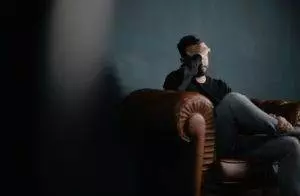
Anxiety, like depression and other mental health disorders, carries the disadvantage of being “invisible.” Other people, and even many medical professionals, simply can’t see physical evidence of the problem, and can’t empathize with the suffering involved. Well-meaning family members and friends might offer suggestions to “calm down” or reminders to stay positive, all with the implication that nothing is really wrong or that “it’s all in your head.” Being plagued with constant self-doubt further amplifies the problem. Anxiety is a real health issue, and TCM offers effective modalities to address it.
Modern medicine has only recently begun to make the connection between emotional and physical maladies. Traditional Chinese Medicine (TCM), on the other hand, has acknowledged for centuries that the mental, emotional and physical experiences of human beings are all inextricably linked. Sometimes a physical injury or traumatic experience can set the stage for a mental health problem. For example, a car accident that creates even minor injuries to the body might trigger future panic attacks, phobias, or Post Traumatic Stress Disorder (PTSD). Other times, a mental health condition like chronic Generalized Anxiety Disorder (GAD) can affect sleep, eating, and other behaviors to such an extent that a person becomes more susceptible to illness and disease. It would not be surprising to see an increase in cases of Agoraphobia (fear of leaving one’s home) and Obsessive-Compulsive Disorder (OCD, which sometimes causes compulsive hand-washing and cleaning as well as hoarding behaviors) as a result of the current coronavirus pandemic. People who experience multiple panic attacks may be diagnosed with panic disorder.
Anxiety disorders already tend to lead to feelings of isolation. Now that most people are spending far more time alone or sequestered with family members and roommates, already existing feelings of fear may be exacerbated. People who have never had to cope with anything beyond normal, mild anxiety may suddenly find themselves feeling real panic for the first time. Additionally, some might feel guilty or ashamed about reaching out for help for these problems when there are so many other people hurting for more apparent reasons. But there is real help for anxiety, and getting that help during this time of crisis makes sense. There is no need to suffer. Find acupuncture near me to address anxiety symptoms and the root causes before the problem becomes more severe and chronic.
Acupuncture for Controlling Anxiety
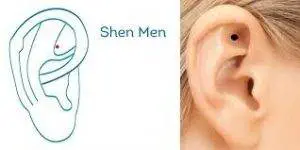
Conventional medicine generally attributes anxiety disorders to abnormal functioning of the brain and nervous system. The feelings associated with anxiety – the emotional sense of worry, the breathlessness and restlessness of the body, the behavioral instincts to freeze or to run – are all exaggerated responses to stress. Stress is the body’s natural reaction to perceived dangers in the environment. When something threatens us, the sympathetic nervous system kicks into gear, and the adrenal glands pump out the hormones that flood the body with energy–what is often referred to as the “fight or flight” response. Normally, once the threat has passed, adrenaline will take some time to move through the body and then dissipate, and a feeling of relaxation is eventually restored. When a person has an anxiety disorder, this hormone release can be triggered by thoughts, and the fear of the physical response itself becomes a part of the vicious cycle.
Acupuncture treatment has been shown to act upon the nervous system, facilitating the release of serotonin, endorphins and noradrenaline, all of which contribute to relaxation and a sense of well-being. Stimulation of specific points have been clinically proven to reduce perceived feelings of anxiety as well as reducing the heart rate and blood pressure of patients. Auricular acupuncture, which specifically uses points on the ear, has been shown to be effective for anxiety. This method is particularly useful, as patients can be fitted with a tiny needle that can be stimulated with gentle pressure as needed to help alleviate symptoms as they appear.
Auricular acupuncture has been used for thousands of years, not only in China, but all over the world. Modern critical analysis has demonstrated that auricular acupuncture affects the parasympathetic nervous system in ways that help alleviate pain and reduce anxiety symptoms. Electro-stim acupuncture, or electro-acupuncture, is another effective modality used by TCM doctors.
How Does Acupuncture Benefit Anxiety Relief of Panic Attacks?
One of the great advantages of acupuncture treatment over conventional methods of talk therapy and pharmacological intervention is that it has an immediately discernible effect. Patients often leave an acupuncture session with a deep sense of calm and relaxation. Reports of improved sleep usually follow quickly. In addition, the long-term effects of regular acupuncture sessions are cumulative, and people report a sustained decrease in episodes of anxiety and panic attacks.
One controlled study compared groups of patients treated with a regimen of acupuncture with moxibustion to a group prescribed a type of benzodiazepine medication. The results showed higher efficacy in reducing anxiety symptoms among the patients receiving acupuncture.
TCM Doctors’ Top 10 Suggestions on Self Care for Anxiety
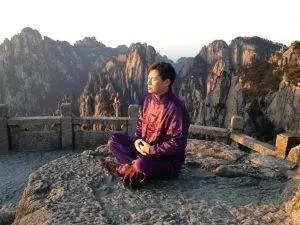
Here are some natural remedies for anxiety you can utilize at home. With consistent practice, these habits will help alleviate stress and reduce anxiety symptoms.
- Meditation for anxiety– Those struggling with anxiety may well be tired of hearing well-meaning friends suggesting they “Relax!” or “just breathe.” But studies have shown that regular meditation practice can significantly reduce anxiety. There are many methods; it is important to find a method that works for you. This study suggested mindfulness meditation may be especially effective.
- Waterfall Meditation – In this exercise, imagine yourself at the base of a waterfall. As you breathe in and out, picture the water gently raining down on you, trickling down each route until the tension inside you releases, relaxing parts of your body one section at a time. Allow your entire body to enter a peaceful and relaxed state. Let the image of the water wash away any stress or anxiety that burdens you.
- Physical Exercise – By now it has been well documented that regular exercise is good for health in every way, lowering the risks of all types of chronic disease. Movement helps reduce anxiety symptoms by reducing adrenal reactivity, increasing the output of endorphins and endogenous (naturally produced in the body) opioids, and even stimulating the growth of new brain cells. It is also suggested that exercise functions as a type of exposure therapy. When people become more used to the sensations of an increased heart rate, heavier breathing, and sweating due to cardiovascular activity, it increases their tolerance for these same symptoms when they appear as part of an episode of anxiety. If you are able to go for a walk or run while following social distancing guidelines, it is especially helpful to get some sun exposure, as well. Put on some music or a favorite workout video; rhythmic movement that engages the large muscle groups provides great benefits.
- Tai Chi and Chi Gong –These ancient traditional forms are “moving meditations” that work upon the endocrine circulatory, and nervous systems to balance energies and strengthen Qi.
- Good Eating Habits – Caffeine, sugar, processed and spicy foods can trigger anxiety. Complex carbohydrates like brown rice, barley, quinoa and oats are relaxing, as are nuts and chickpeas, which contain tryptophan. Now is a good time to become more intimately involved with preparing dishes at home, and this process can also be soothing: a mindfulness exercise that results in a healthy meal! Your TCM provider will provide more detailed instructions for a nutrition program for your specific situation.
- Stress Reduction –Reducing stress goes hand in hand with reducing anxiety. Especially now, carefully manage your daily activities so as not to become overwhelmed. Allot a short period of time for checking the latest news and catching up with friends; then consciously disengage from screens and virtual realities. Social media has already been called into question for its apparent increase of anxiety among teenagers, but it has a real impact on people of all ages. Comparing your situation and surroundings to the carefully curated content you see on sharing platforms can make you feel pressure, shame, a sense of inadequacy. Commit to being grounded in your immediate surroundings and grateful for the blessings that are in your life right now. Recognize that, while it is important to educate yourself about the novel coronavirus, many of the opinions being expressed online are not informed and are designed to provoke an emotional reaction. Avoid reading comments that you know might be triggering.
-

Acupuncture treatments can alleviate sleep anxiety. Sleep Better to Combat Sleep Anxiety – Repetitive, OCD intrusive thoughts and restless energy within the body can make sleeping difficult when you are experiencing sleep anxiety. Cortisol–another stress hormone–levels tend to rise in the evening, and many people register this sensation as anxiety at night. Eating simple carbohydrates like sweets or chips suppresses cortisol and offers a temporary feeling of relaxation. But consuming these foods or alcohol to artificially reduce stress leads to less restful sleep later. Dr. Tan and Dr. Cai can offer many suggestions for how to modify your habits to achieve a better night’s sleep.
- Learn a Language – Distance learning has quickly become an integral part of our lives. Many people are using their time at home to learn new skills. Now is a great time to learn a new language. Studying and practicing will help you focus your mind and instill a sense of accomplishment to help relieve anxiety.
- Structure Your Days – Even though daily life has taken an unusual turn, maintaining a consistent schedule helps keep hormone and energy levels more consistent. Rise and retire at about the same time each day. Eat regular meals. Set aside hours for work and much-needed time for rest and relaxation. Creating a structure for your life helps you feel that you are controlling what you can.
- Cognitive Behavioral Therapy (CBT) 5-4-3-2-1 Grounding Exercise – Use this exercise when feeling anxious or suffering a panic attack. This helps you ground yourself in reality by actively using your five senses. Look for the things, and then name them out loud.
- 5 – Count five things in your immediate environment that you can SEE.
- 4 – Count four things near you that you can TOUCH.
- 3 – Count three things near you that you can HEAR.
- 2 – Count two things you can SMELL.
- 1 – Count one thing you can TASTE.
How to Use 3 Acupressure Points for Anxiety Relief
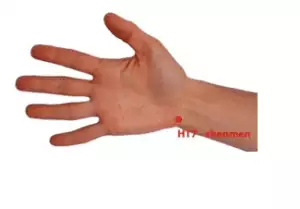
Acupressure is a technique patients can use anytime for symptom relief. Apply gentle, firm pressure to these points.
- Liver 3 is a grounding point that helps redirect rising energy downward. Located between the first and second toes, you will find a very tender spot. Try applying gentle pressure here to alleviate irritability, headaches, TMJ, and anxiety.
- You have probably seen the bands people sometimes wear around their wrists to prevent nausea. These are designed to put pressure on Pericardium 6, which quells queasiness. The point is located between the two tendons on your wrist, two fingers up from the wrist crease. Pressing on it is immediately calming. It helps to open the chest, as well, so if you feel tightness in the chest or shallow breathing, use this point.
- Shen Men, called the “Spiritual gate” point, releases heart fire, excitement, anger, irritation and anxiety.
Look for Acupuncture near me in Los Angeles for Anxiety
At Art of Wellness, one of the top 20 clinics in greater Los Angeles selected by experts, we are concerned that so many people are feeling the weight of these difficult times and having to go it alone. But we are here, committed to helping people whether they are suffering possible symptoms of COVID-19 or intense anxious feelings related to fear of the virus. Please do not hesitate to reach out to us at 310-451-5522 or email us at myartofwellness@gmail.com if you or someone you love is battling anxiety.
*This article is for education from the perspective of Traditional Chinese Medicine only. The education provided by this article is not approved by FDA to diagnose, prevent, treat and cure human diseases. It should not stop you from consulting with your physician for your medical conditions. Traditional Chinese Medicine is based on Qi, which is an invisible force that usually cannot be observed by modern science. Because science focuses on testing ideas about the natural world with evidence obtained through observation, these aspects of acupuncture can’t be studied by science. Therefore acupuncture and Chinese herbs are often not supported by double-blind, randomized trials, and they are considered alternative medicine therapies in the United States.
What is Multiple Sclerosis and How to Manage MS with TCM & Acupuncture
Multiples Sclerosis is autoimmune disease, Traditional Chinese Medicine & Acupuncture are very helpful to improve these condition.
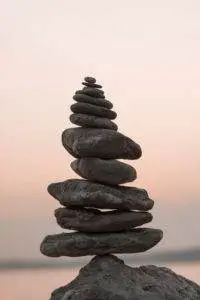
Dr.Tan’s Case and Testimony
Mr. M- a healthy 50-year old Caucasian gentleman—first visited my office Art of Wellness Acupuncture a few years ago. As an attorney, he had been working very hard to support his two daughters, who were both in college. About four months ago, the onset of serve lower back pain along with tingling in his left leg changed his life completely. He saw several doctors, had a number of x-rays and an MRI which revealed a moderate bulging disk on L4-L5. He tried different pain pills, NSAIDs, and underwent three months of physical therapy, none of which had helped. Recently, he had been experiencing numbness and weakness in his left leg, and was suffering from depression due to his inability to carry on with daily work and regular activities. When he talked to me, I noticed that he constantly rubbed his eyes. I asked if he felt any abnormalities in his vision. He answered yes, and that he had periodic occurrences of blurred vision. When I suggested that he showed me how he walks, I noticed his poor balance. He tended to fall on his left side because his left leg did not seem to follow his motion. Then I checked his knee and ankle reflex and found that they were excessively active. I was almost certain that the condition that made him suffer so much in the last few months was not a simple bulging disk or sciatica; it was a disorder of the central nervous system-Multiple Sclerosis. Immediately, referred him to a neurologist and suggested that he have a brain and cervical MRI. Two weeks later, he came back to my office with a confirmed diagnosis of Multiple Sclerosis.
Mr. M. is just one of 200 patients who are diagnosed with MS every week in the United States. There are about 400,000 people in the U.S. and 2.5 million patients who are suffering from this disease in the world.
Cause of MS
MS is an autoimmune disease in which infections or environmental changes can confuse the body’s defense system. Sometimes a foreign antigen mimics a group of the body’s own proteins. When the immune system response by mounting an attack against these foreign invaders, it inadvertently destroys the foreign antigen along with any similar antigens, including the body’s own tissues.
A recent study shows that a virus called adenovirus type 2 looks remarkably similar to the composition of the protective covering around the spinal cord and parts of the brain—the myelin sheath cells. The attacks of the immune system of this virus along with the mistaken attack on the myelin sheath is believed to be the ultimate cause of multiple sclerosis。
Common symptoms of MS
- numbness or tingling, usually in the leg or arm
- muscle weakness
- dizziness
- spasticity
- pain (moderate to severe)
- Ataxia
- Tremor
- Slurred speech
- Blurry, double vision or blindness
- bladder malfunction
- bowel dysfunction
- sexual dysfunction
- depression
- euphoria
- cognitive abnormalities
- fatigue
Most commonly, MS first manifests itself in a series of attacks followed by complete or partial remission as symptoms mysteriously lessen. These symptoms, however, will return later after a period of stability. This is called relapsing-remitting (RR) MS.
Treatment of MS
Unfortunately, there is no cure for MS yet. In Western Medicine, the treatment focuses mainly on decreasing the rate and severity of relapse. Beta interferons, anti-cancer drugs (to weaken the immune system), and steroids are commonly used for the treatment of MS. These medicines can reduce the number of MS lesions, delay the progression of the disease, and provide symptomatic relief for the patient.
In TCM, a condition called “Wei Syndrome” with symptoms similar to MS, was documented 2000 years ago in a classic Traditional Chinese Medicine book called Emperor Classic Medicine. Acupuncture and Traditional Chinese Medicine has been involved in the treatment ever since. MS patients who have tried acupuncture report improvement in pain, spasticity, numbness and tingling, fatigue, depression, anxiety, and bowl, bladder function.
Maintaining a healthy lifestyle is very important for the MS patient. This includes:
- Getting enough time to sleep and rest. Go to bed early
- Exercise regularly. Tai Chi and Yoga are very good to help patient relax, balance and with muscle strength
- Balanced diet, a lot of vegetables and enough protein from white meat
- Stress management
- Daily meditation and positive thinking
- Staying connected with friends and joining a support group
- How to reduce and prevent inflammation
Patient Story- Gilly
I was diagnosed with Relapsing Remitting MS in 1991 and I had no idea what a crazy, unpredictable journey I was about to embark on.
I woke up one morning, tried to get out of bed but my legs were like jello, I had no balance and had double vision.
I was given a spinal tap and MRI and lesions were detected on my brain & cervical spine.
When first diagnosed, my neurologist put me on one of the few FDA approved medicines for MS which don’t cure the disease, but delay the progression. For that I inject myself daily and have done so for 17 years
For the first 7 years after being diagnosed, I experienced relapses (flare up of symptoms) on average twice a year. The treatment for relapses was a 5 day course of steroids administered through IV, followed by 12 days of oral steroids.
The relapses affected my motor skills the most, especially walking but after a treatment of steroids, I was almost as good as new.
My friends suggested I try acupuncture. I was recommended to Dr Tan because he had studied MS in China. *
Dr Tan has been monumental in my life. He has given me treatments for a multitude of injuries I’ve suffered over the years due to frequent falls and is an expert in pain relief. He treats me for stress relief which contributes my general wellbeing. Dr Tan is very knowledgeable about Western medicine and MS treatments so I always ask his opinion.
I’ve been diagnosed with MS for 21 years and feel fortunate that Dr Tan has been treating me for a large part of that time. Although I partake in Western medicine, I know that Western medicine only treats the symptoms but Eastern medicine treats the cause of the symptoms.
My MS has progressed to the stage that I now use a wheelchair full time.
I go to acupuncture for preventative care. My immune system needs extra help especially during cold & flu season.
I am very aware that MS is a ‘designer’ disease, and no two people have the exact same symptoms. I would encourage anyone with MS to avoid stress, keep up a healthy immune system and try to stay positive and happy, because your emotional state affects your physical being.
Easy Does It Meditation
There is a large variety of meditation to choose from. It isn’t all just sitting cross-legged with your eyes shut. Let’s explore types of meditation.
Types of meditation include Buddhist practices, transcendental, zen, mantra, chakra, sound, guided and active. How can someone choose where to start? Think about the type of person you are overall, the amount of time and dedication you have, and where your interests lie. What do you intend to get out of meditation? continue reading

